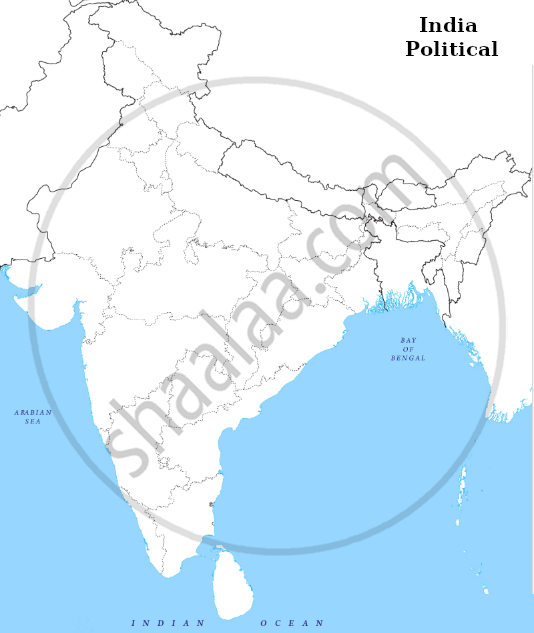Advertisements
Advertisements
प्रश्न
Describe the causes and events of the 'Non Co-operation Movement'.
उत्तर
- Causes: The Non-Cooperation Movement was started for three main reasons.
- Rowlatt Act: This Act granted the government broad authority to suppress political activity and permitted the two-year detention of political prisoners without charge.
- Jallianwala Bagh Massacre: The renowned Jallianwala Bagh massacre occurred on April 13, 1919. A sizable crowd gathered that day in Jallianwala Bagh's walled-off grounds. General Dyer fired on the tranquil crowd without giving any prior notice. There were hundreds of fatalities and numerous injuries.
- Khilafat Issue: After Ottoman Turkey was defeated at the end of World War One, there were rumours that the Ottoman Emperor (the Khalifa) would be forced to sign a harsh peace treaty. The Khilafat Movement was started by the Ali brothers, Mohammad Ali and Shaukat Ali, to restore the Caliphate. Gandhiji saw this as a chance to unite Muslims under a single movement banner.
- Events: Gandhiji started the non-cooperation movement, which included the following events:
- In September 1920, Gandhi launched the Non-Cooperation Movement.
- It aimed to achieve Swaraj and stand up for Punjab's and Turkey's wrongs.
- The educated middle class dominated the anti-cooperation movement in towns and cities. There was a boycott of courts, universities, and other governmental organisations.
- All provinces avoided participating in elections, except Madras, where the Justice Party of Non-Brahmins debated.
- Baba Ramchandra organised a peasant uprising against Talukdars and Landlords in the nearby villages.
- Under the direction of Alluri Sitaram Raju, tribal members opened fire in the Gudem hills of Andhra Pradesh.
- Plantation workers from Assam began to fight for the right to mobility.
- The Chauri Chaura incident took place on February 5, 1922, in the Chauri Chaur neighbourhood of the Gorakhpur district of the United Provinces in British India. During a clash between the police and movement protesters, a violent mob set fire to a police station, killing 22 officers. In response to this event, Gandhiji decided to end the movement.
APPEARS IN
संबंधित प्रश्न
Answer in 100-150 Words
How Did Mahatma Gandhi Seek to Identify with the Common People?
Answer in 100-150 Words
How Was Mahatma Gandhi Perceived by the Peasants?
Answer in 100-150 Words
Why Was the Charkha Chosen as a Symbol of Nationalism?
Write a Short Essay (250-300 Words) on the Following:
How Was Non-cooperation a Form of Protest?
A series of ‘Praja Mandals’ was established to promote nationalist creed in ______.
Who led the Khilafat Movement in India?
Match the following.
| (i) | Jallianwala Massacre | (a) | 1918 |
| (ii) | Peasant movement in Kheda | (b) | April 1919 |
| (iii) | Second Round Table conference | (c) | 1939 |
| (iv) | Second World War started | (d) | 1931 |
Choose the correct option.
On the given political outline map of India, locate and label the following with the appropriate symbol:
The place where Gandhiji withdrew Non-Cooperation Movement.

Consider the following events:
- Jallianwala Bagh Massacre
- Khilaf at Movement
- Formation of Swaraj Party
- Arrival of Simon Commission
The correct chronological order of these events is:
Who drafted the resolution on fundamental rights for the Karachi Session of Congress in 1931?
Who of the following organized a march on the Tanjore coast to break the Salt Law in April 1930?
In which year, Jallianwala Bagh Massacre took place?
What was the main demand of khilafat movement?
Consider the following statement regarding Rowlatt Satyagraha
- Rowlatt Act was passed in the year 1915.
- It was passed on the recommendation of a committee chaired by Justice CN Broomfield.
- This Act permitted detention without trial.
- Gandhiji called for a countrywide campaign against this Act.
Which of the above statements is/are not correct?
Match the following.
| List I | List II |
| A. Parallel government | 1. Dandi |
| B. Assassination of Mahatma Gandhi | 2. Amritsar |
| C. Salt Satyagraha | 3. Delhi |
| D. Jallianwala Bagh Massacre | 4. Satara |
Explain the importance of the Non-Cooperation Movement.
Describe the circumstances that led to the initiation of Non-Cooperation Movement by Gandhiji. Explain the significance of this movement?
On the given political outline map of India mark and label of the follow with appropriate symbol:
The place where Jallianwala Bagh Massacre happened.

"As a consequence of the Non-cooperation Movement the British Raj was shaken to its foundation for the first time since the Revolt of 1857." Explain the statement with examples.
"Mahatma Gandhi's own role was vital in the growth of 'Gandhian Nationalism' but it also depended on his followers". Explain the statement with examples.
Assertion (A): Gandhiji called for a countrywide agitation against the Rowlatt Act.
Reason (R): British authorized the government to imprison people without trial.
Describe the role of Gandhiji in the Indian freedom struggle from 1922 till 1931.
Explain the role Gandhiji in Indian Freedom movement from 1916 till 1922.
